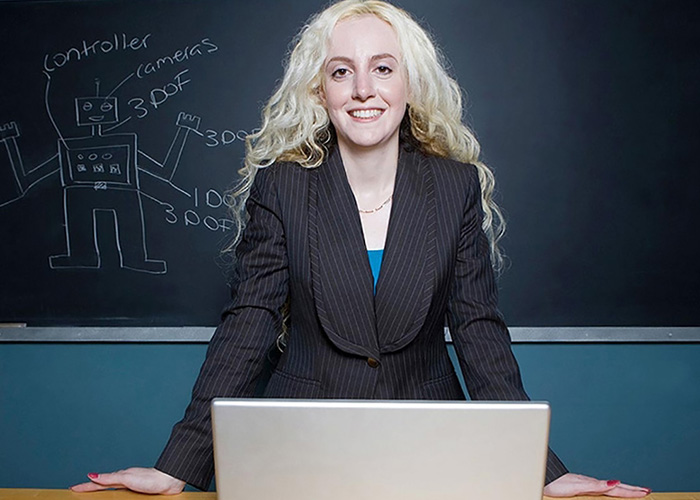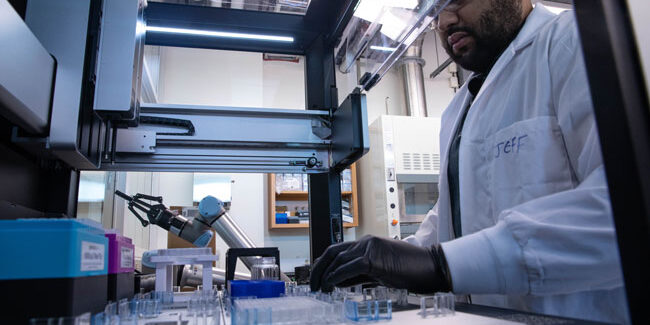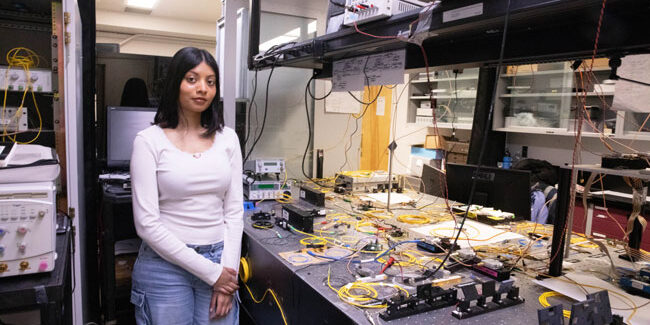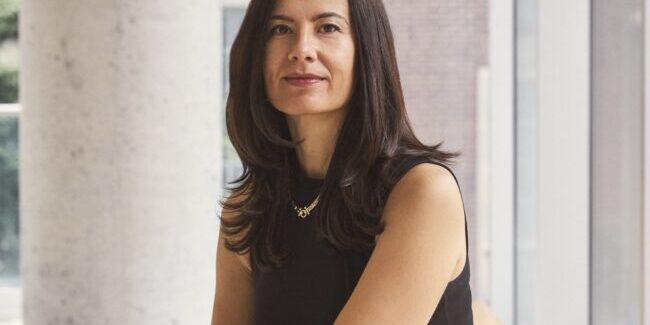
More time to interact with patients and improved efficiency in health-care delivery are just some of the positive outcomes of artificial intelligence, according to researchers from U of T Engineering.
“AI has the power to change the way we live and work, making more human capital available to focus on creativity and innovation,” says Dean Cristina Amon.
Artificial intelligence and automation, and the impact of advanced technology on business strategy and workforce demand and supply, is one of the themes that will be discussed at this year’s Ontario Economic Summit. Together with leaders in the private, public and not-for-profit sector, U of T researchers and entrepreneurs will be showcasing how they are seizing these opportunities.
Professor Goldie Nejat (MIE) is among many researchers at U of T Engineering who are demonstrating how advances in artificial intelligence can accelerate gains in health, education, communication and quality of life, as well as the importance of educating students to think about the ethics of the technology.
After reading about or seeing the robots being produced in Nejat’s lab, people have written her personal letters.
“I’ve been asked, ‘How can I get one of these robots? A family member has dementia and I can’t leave them alone,’” says Nejat, who is the Canada Research Chair in Robots for Society and Director of the Institute for Robotics & Mechatronics (IRM).
The socially assistive robots are designed to help seniors improve their quality of life. They can score bingo cards or play memory games in nursing homes, or help prepare meals at home.
Nejat’s research team is now working on robots that can switch between all of those tasks seamlessly, the way a human can, she says.
“Human movement and behaviour are unpredictable, so we are seeing if robots can adapt and react to that,” Nejat says.
The hope is that by taking over routine tasks, the robots will free personal-care workers to spend more time interacting with the people they care for in meaningful ways.




